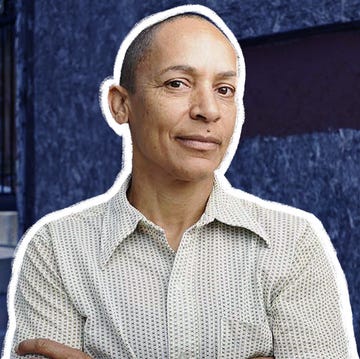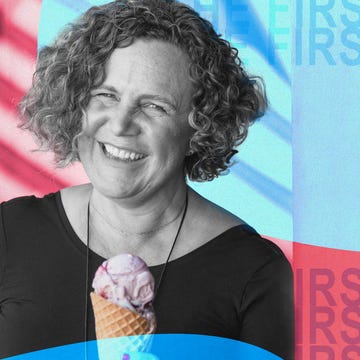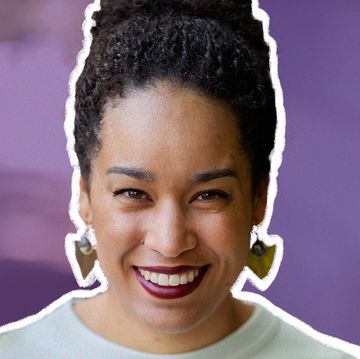In the Shondaland series Financially Fearless, we’re getting candid about how money impacts everyone’s lives. Our solutions will detail how to boost your financial wellbeing, trim overspending, craft a budget, and discuss money matters with loved ones.
We’ve all heard the basic rules of budgeting. Avoid impulsive money decisions. Don’t live beyond your means. Aim to spend 30 percent on wants, 50 percent on needs, and 20 percent in savings. These are tried-and-true methodologies for saving, and certainly, when it comes to managing your money, there are universal truths to keep in mind.
It’s difficult to pay off debt, budget for expenses, and build a savings account if there’s not enough money to start with. It’s smart to prioritize covering your basic living expenses and paying off debts before you start building savings. And as we’ve all learned the last few years, life is unpredictable. So, having an emergency fund that can cover at least three months of living expenses — or six months to a year if you’re in a more unpredictable work field — is probably a smart idea.
But getting to a financially healthy place can be a uniquely personal challenge that changes depending on where you’re starting from, what tools you already have at your disposal, and especially, how you’ve been conditioned to think about money, both internally and externally. Which is why, as our relationship with money gets ever more complicated because of a changing economy and various financial factors (looking at you, crypto), it’s worth investigating a few out-of-the-box ways to approach budgeting in your own life.
Get loud
According to etiquette books, money is listed somewhere between sex and religion as something you shouldn’t talk about. Not true, says Berna Anat, a financial educator and self-declared hype woman for taking control of your money. Growing up in a lower-middle income family kept her focused on survival and assimilation, and after going into debt in college and working as a journalist, she says she “spoke fluent broke.” That all changed when she started investigating her relationship with money — and sharing what she learned on Instagram. To her surprise, she wasn’t the only one struggling.
“The response was so nuts, especially from women of color,” she recalls. “Women of color in my DMs being like, ‘Yo, I’ve never heard anybody talk about money the way that you do! You’re really blowing my mind. I can’t believe you’re admitting out loud about all the debt that you have. What resources do you have? Do you teach about this too?’ I was just learning. But the thirst was so apparent. And that’s when I realized that this representation plus relatability can go so far. I could change people’s lives by just existing in this space.”
If you have a financial goal like getting out of debt and establishing a budget, share it! Chances are you’re not alone. (“Every human in the universe has many issues, and everyone is just waiting, holding their breath for someone to say it first,” Anat notes.) And don’t be afraid to break down resistance by adding a little humor into the mix, even if it’s just to keep yourself on track. For Anat, that’s translated to this small life hack: labeling her credit and debit cards with their intended purpose so she’s always spending with an audience. “I use hyper-specific language — like expletives and super not-safe-for-work language,” she says. “Label your debit cards with those nicknames so that when you take them out, either it’s a reminder of what you’re supposed to be using that card for, or it’s a conversation piece. For example, I used it on my emergency credit card. I put a little Post-it written in Sharpie that said, ‘Cashier, if she’s giving this to you for a non-emergency, give it back to her.’”
Cultivate the correct mindset to tackle the challenge
As with any big life change, you’re not going to succeed if you don’t believe you can actually do it. In her book You Are a Badass at Making Money, author Jen Sincero tackles an aspect of making money that many of us neglect: our mental game. And just like struggling to work out or set boundaries, sometimes it’s simply more comfortable to believe we can’t get our budget under control than deal with the uncomfortable steps it might take to get there.
“If you can make yourself believe the thoughts that are screwing up your financial life — e.g., ‘I can’t make money because of X’ (I’m a single mom, I live in the middle of nowhere, I’m an idiot, etc.) — you can make yourself unbelieve them too,” Sincero writes. “This is how powerful we are and how deceptively simple changing our lives is — we can literally create the reality we desire by making ourselves think and believe what we desire to think and believe. How awesome is that?”
But we don’t break patterns unless there’s a compelling reason. To force a change in your life, be clear about why you want to get your budget back on track, and keep that goal in the forefront of your mind as you begin to break down your goal into smaller, workable steps. Having a clear objective, whether it’s no longer having to stress about being in debt, saving for a house, or taking a dream trip, will help you overcome challenges along the way. Saying no to a night out, selling your car, or downsizing living expenses can be difficult, but choosing to obsess over your “why” will help you succeed.
Embrace flexibility
Maybe the answer to your issues isn’t a magical mindset. As Ally-Jane Ayers, co-founder at Brooklyn FI, a full-service financial planning company, points out, it’s worth simply building additional flexibility into the financial guidelines that you’re already following. Things change — you should too.
“I think the only thing out of the ordinary would be like, ‘Oh, hey, we have 9 percent inflation,’” she says. “No one talked about that in personal finance textbooks or anything like that. This might be a period where you are adjusting down your savings rate to pay for gas. Or maybe you are adjusting your budget because things are a lot more expensive. … I think that’s what’s really important to remember is that economics and cycles of the economy, it’s all cyclical. So, it might feel to a lot of Americans like it’s the end of the world. Maybe your salary has stagnated, and your gas went up 10 percent, and your rent went up 50 percent. Or something insane happened, and your medical bills went way up. You will get through this. Most people who have jobs who are college educated are going to be much more afraid of the recession than the recession is going to actually impact their lives.”
To help, Ayers suggests giving your money a job. Open up accounts for whatever you need, and automate payments or contributions: a fund for an upcoming trip, something to cushion the blow of rising rent prices, an emergency fund — it’s all fair game. But rather than set and forget it, adjust those numbers and categories as things change.
“If you set up $100-a-week savings, and then you have an overdraft, maybe we need to either cut your spending, or maybe you actually can’t afford that,” she says. “So, instead of getting rid of it and saying, ‘Oh, that failed!’ Move it down a little bit; instead of $100 a week, maybe it becomes $50.” If the current state of the economy — even the world, really — is proving anything, it’s that malleability across life, should it be possible, is worth it. And when it comes to finances, you want to be ready, mentally, emotionally, and pragmatically, to deal with the ups and downs that come along.
Laura Studarus is a Los Angeles-based travel writer who has contributed to Fast Company, BBC Travel, and Thrillist. Follow her on Twitter at @Laura_Studarus.
Get Shondaland directly in your inbox: SUBSCRIBE TODAY
















